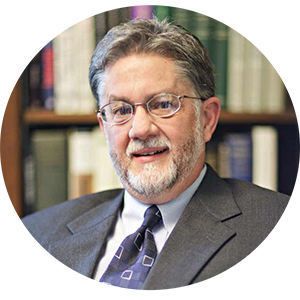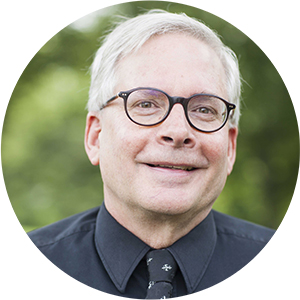For this month, Towers asked two theology faculty members to answer this question: Where are you on the cessationist-continuationist spectrum? What do you make of stories about incredible supernatural or demonic activity?

Bruce A. Ware
T. Rupert and Lucille Coleman Professor of Christian Theology
My position is a bit of a compromise, or blending, of the cessationist and continuationist views. The name I’ve given to my view (a rather inelegant name, to be sure) is that of a “gift cessationist / function continuationist” position. That is, I consider it best to understand the miraculous gifts to have ceased at the end of the age of the apostles. Ephesians 2:20 indicates that the church is built upon the foundation of the apostles and prophets. We know these are NT prophets, not OT prophets, in light of Paul’s ongoing discussion of them in 3:5, and so they end when the apostles end (by the end of the first century). The gifts of healing and miracles, likewise, because they were primarily confirmatory of the inbreaking of the age of the Messiah (see Matt 11:4-5) and the new revelation of the apostles (see 2 Cor 12:12; Heb 2:4), are best thought of as ending (as gifts) also at the end of the apostolic era. So, I think the evidence points in the direction of these gifts, qua gifts, as ending when the age of the apostles ends.
But I do not think that the ending of a miraculous gift means that God will not sometimes use the “function” of that gift as he so chooses. Healing is a good example, I believe. Though the gift of healing is over, so we don’t look for particular people who have that gift to exercise in the church, nevertheless God can still heal today, and many of us can even point to specific accounts where supernatural healing has occurred. The same may be true of other gifts – where the gift itself ends, but the function of that gift can be used by God whenever he chooses. Consider the accounts today of how many converted Muslims have had the experience of a vision of Christ. So, though revelatory gifts have ended, God can still reveal himself in a dream or vision as he chooses to do so.
Holding this middle position leads to two advantages, in my view: It directs one to go through life open to God acting in miraculous ways rather than thinking that all such divine miracles or supernatural forms of divine leading are over in this age. We should not go through life as “functional naturalists,” disbelieving God’s ability to do any time, in any place, just what God chooses to do, including supernatural activities. But it also means that we do not promote the use of supernatural gifts in the church, since these do not continue as gifts. Honestly, if one holds a strict continuationist view, and so believes that the supernatural gifts have continued, then that person is obligated to see those gifts practiced in the church. If these are gifts of the Holy Spirit, given for the common good, how could we rightly restrict their use? But if they are not any longer gifts (my view), then we do not seek to see them practiced in the church, while we also are open to God acting in supernatural ways in our lives, in our churches, and in our world (also my view). So, I commend for your consideration this hybrid view of gift cessationism with function continuationism.
 Gregg R. Allison
Gregg R. Allison
Professor of Christian theology
I’m a continuationist: the Holy Spirit continues (hence, the position of continuationism) to distribute today all the spiritual gifts set forth in the New Testament, including the so-called “sign” gifts (prophecy, speaking in tongues, interpretation of tongues, word of knowledge, word of wisdom, healings, and miracles). Continuationism differs from cessationism because the latter position, while agreeing the Holy Spirit distributes many of his gifts today (e.g., teaching, leading, mercy, helps), believes that the Spirit ceased (hence, the position of cessationism) giving the so-called “sign” gifts.
Continuationism is grounded theologically on the primary purpose for spiritual gifts, namely, the building up of the church so that it reaches maturity in Jesus Christ. As the church will not attain complete maturity until the Lord’s return, his body will always need to be edified until that event takes place. Thus, the full range of spiritual gifts is necessary until “the perfect comes” (1 Cor 13:8-13; cf. 1 Cor 1:7-8).
As for stories about supernatural and demonic activity, discounting those tall tales that are clearly bogus, fictional, outright lies, and false, I believe these accounts are true testimonies of people’s experiences with the miraculous power of God and the maleficent activity of Satan and his minions. Examples of the first category include dreams and visions of Jesus Christ in the Muslim and Hindu world. Thousands, perhaps tens of thousands, of non-Christians have experienced these miraculous manifestations and thus been prepared to embrace the message of the gospel when someone later (days, weeks, months, years, even decades afterwards) communicates it to them. Also, in some church planting movements (CPMs) in certain parts of the world, healings of sicknesses and miracles of sight and speech so regularly accompany the advancement of the gospel and the rapid multiplication of churches that they are commonplace.
At the same time this supernatural divine power is expressed in the midst of intense demonic activity. Widespread false doctrine (e.g., the prosperity gospel), intense physical and emotional torments, seemingly impenetrable idolatrous religions, sufferings due to curses placed on people, fierce persecutions of churches, lurid temptations leading to dehumanizing addictions, seemingly inexplicable disunity in and among churches, debilitating demonic oppression and even possession, and much more are manifestations of the evil one and his crazed cohort.




